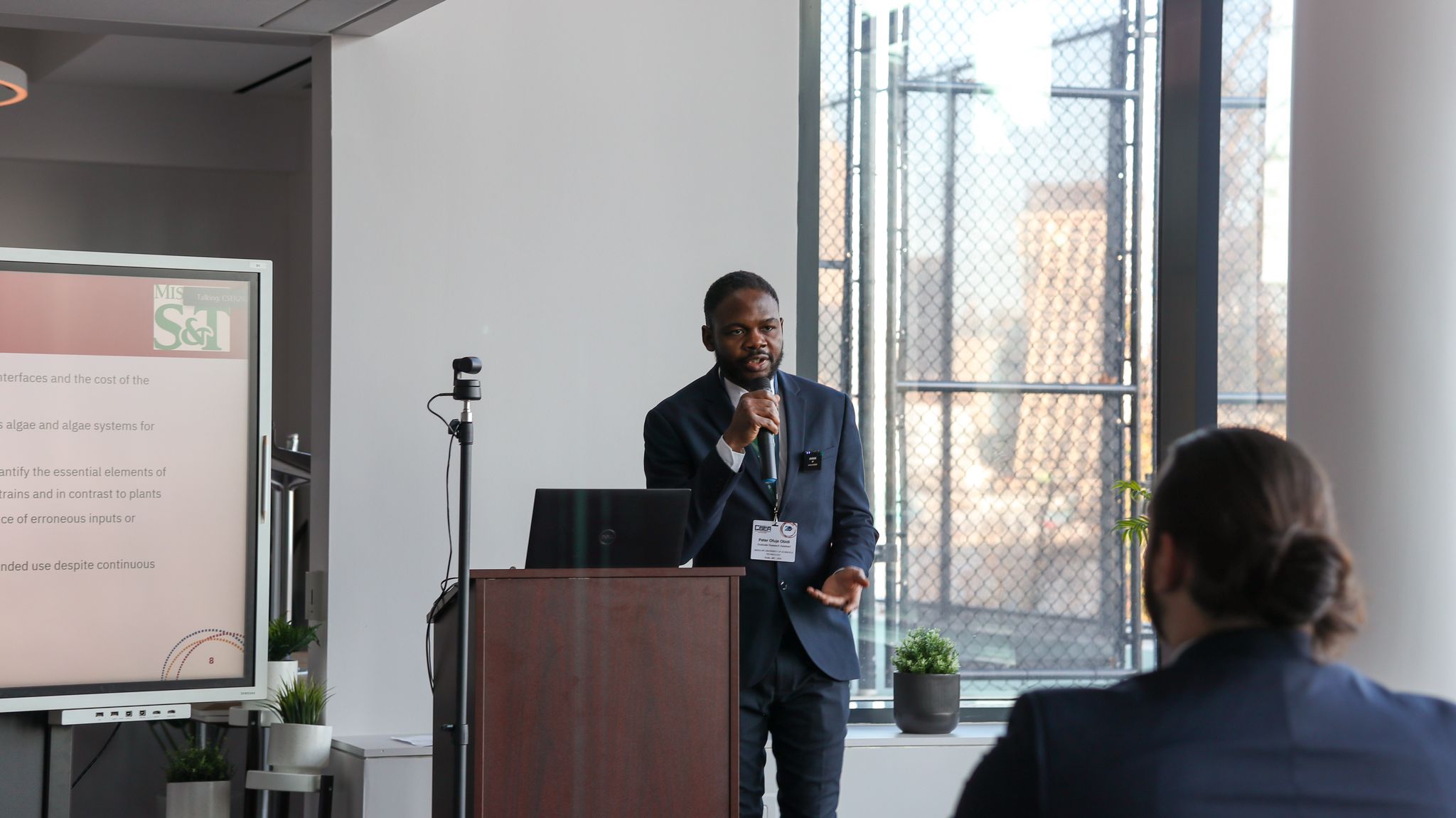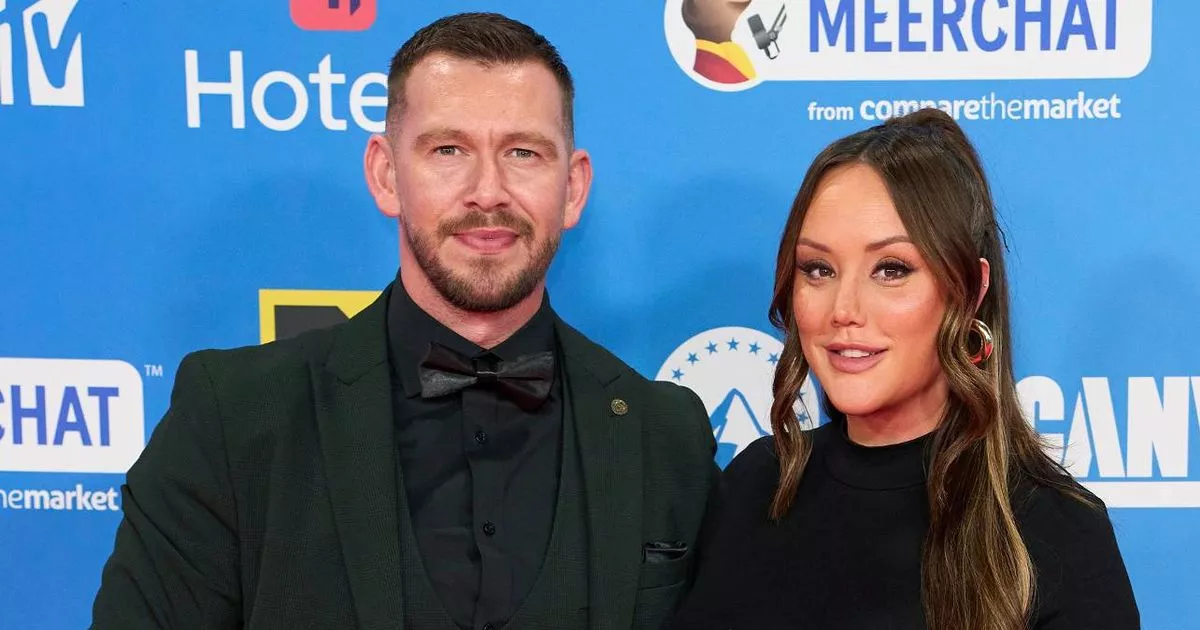
An American Based Nigerian Scientist, Peter Ofuje Obidi is exploring the recycling of carbon into biofuel in order to reduce carbon emission into the atmosphere which is responsible for climate change that is affecting the economy of Africa adversely.
Obidi is a doctorate degree candidate in Mechanical Engineering at Missouri University of Science and Technology, Rolla, Missouri, United States of America. His research, under the guidance of Prof. David J. Bayless, focuses on enhancing the optimization of mass transfer for carbon capture and wastewater remediation through innovative algorithmic and bioprocessing techniques.
In an exclusive interview with Nigerian Tribune, Obidi explained that in his research, he focuses on enhancing the optimization of mass transfer processes critical for carbon capture and wastewater remediation, utilizing innovative algorithmic techniques, including AI and machine learning, alongside bioprocessing methods involving photobioreactors.
Furthermore, Obidi explained that “photobioreactors involve the strategic manipulation and control of mass transfer processes to efficiently capture carbon dioxide (CO2) and remove pollutants from wastewater using cultivated algae, which naturally processes these compounds”.
He said by optimizing these systems, he aims to develop more effective, sustainable solutions for environmental management and resource recovery, reducing industrial impacts on climate and water resources.
The Nigerian born Researcher further expatiated carbon capture involves trapping carbon dioxide from industrial and energy-related sources, preventing it from entering the atmosphere and contributing to global warming, while wastewater remediation refers to the process of removing contaminants from wastewater, including industrial effluents and municipal sewage, using various physical, chemical, and biological methods.
“Algorithmic Techniques refers to the use of artificial intelligence (AI) and machine learning (ML) algorithms to optimize the operational parameters of the processes involved in mass transfer, ensuring maximum efficiency in both carbon capture and wastewater treatment.
“Bioprocessing Techniques Using Photobioreactors describes my use of photobioreactors for cultivating algae under controlled conditions, harnessing their natural processes like photosynthesis and nutrient absorption for both carbon capture and wastewater remediation.
He noted that upon concluding his research on wastewater remediation, the immediate impact would include significantly enhanced efficiency and cost-effectiveness of wastewater treatment processes.
“By developing optimised photobioreactors and integrating advanced bioprocessing techniques, my work aims to improve the quality of water being discharged back into the environment, thereby reducing public health risks and ecological damage. This will not only support regulatory compliance for industries but also contribute to the sustainability of our water resources by enabling safer reuse and recycling of treated wastewater”, he noted.
Obibi reiterated that his research on carbon recycling is specifically designed to address climate change in a sustainable manner. He noted that by developing and refining bioprocesses that capture and recycle carbon dioxide, his target is to reduce atmospheric CO2 levels and mitigate the effects of industrial emissions.
This work, according to him, involves the use of photobioreactors and innovative biotechnologies to transform captured carbon into useful products such as biofuels, contributing to a circular carbon economy and helping combat global warming effectively.
“My research on algae growth focuses on optimizing photobioreactors to enhance the growth and productivity of algae for environmental applications. This involves fine-tuning the conditions under which algae thrive, ensuring efficient CO2 absorption and effective wastewater treatment.
“The ultimate goal is to scale these processes for commercial use, where algae can be harnessed to produce biofuels and other valuable biochemicals, thereby contributing to renewable energy solutions and reducing reliance on fossil fuels. Through this work, I aim to demonstrate the viability of algae as a key player in sustainable environmental management and energy production.
“Beyond the primary areas of carbon capture and wastewater remediation, my research also explores the potential of using algae in astrobotics, aiming to create sustainable life-support systems for extraterrestrial environments, such as sustaining human presence on the moon.
“This facet of my work integrates environmental engineering with astrobiology, paving the way for innovative solutions that could support future space exploration and habitation. By developing these advanced biotechnological systems, I am contributing to the broader field of sustainability, both on Earth and in space”, Obidi added.
Obidi holds a master’s degree in management from both Czestochowa University of Technology, Poland, and Leuphana University,Germany, and a Bachelor of Engineering in Mechanical Engineering from Delta State University, Nigeria.
His academic journey is complemented by certifications in energy efficiency, sustainability, Six Sigma industrial process control, energy transition, and project management from prestigious institutions across the globe.
Obidi’s professional experience spans several years and includes roles in environmental sustainability research, production support, industrial maintenance, operations, and maintenance technology.









